Premium Only Content

THE COAL CARTEL
Setting the Scene for World War II
In 1929, International Bankers triggered the Great Depression.
after they, their agents, and friends had sold out at the crest of an artificially inflated stock market boom, they pulled the rug out from under the system and sent the US plunging into what became known as the Great Depression.
This economic catastrophe slowed global economies to a near standstill.
The United States stopped lending to Germany, causing a severe drain on the German gold reserve.
15% By 1931, Germany's discount rate had skyrocketed to
This drastic action reduced German industrial activity.
When Germany's pleas for relief on her reparation payments were rejected, her situation worsened.
In this climate of debt and fear, Adolph Hitler and his National Socialist Party emerged.
Hitler's promises to free Germany from the Versailles Treaty and provide "living room" for the population resonated with millions of Germans.
When the Nazis came to power in 1933, they found that Germany had been preparing for war from an economic and industrial point of view.
American capital that had flooded into Germany under the Dawes Plan after 1924 formed the basis for Hitler's war machine.
As Dr. Antony C. Sutton points out, "the contribution made by American capitalism to German war preparations before 1940, can only be described as phenomenal."
Leading American banking and industrial interests were heavily involved in the rise of Hitler's Third Reich.
In the years prior to World War II, an international cartel,
I.G. Farben, dominated the world's chemical and drug industries.
It became the largest industrial corporation in Europe and the largest chemical company in the world.
Germany, lacking oil deposits but abundant in coal, sought to convert coal into gasoline.
By 1920, German chemists had discovered ways to make large quantities of hydrogen and convert it into liquid coal products.
This discovery led to the creation of a worldwide cartel.
Farben and Standard Oil were now 'married' Under an agreement on November 9, 1929.
Standard Oil was given a one-half share of all rights to the hydrogenation process in all countries except Germany.
Both parties agreed to never compete with each other in the fields of chemistry and petroleum production.
two years later, Farben signed what was known as the Alig Agreement with Alcoa in which the two companies pooled all their patents and knowledge in the production of magnesium.
When Henry Ford established an auto plant in Germany, Farben bought a forty percent interest.
Henry Ford's son Edsel, joined the board of directors of I.G. Chemical Co. did Walter Teagle, president of Standard Oil, Charles E. Mitchell, president of Rockefeller's National City Bank of New York, and Paul Warburg of the Federal Reserve System.
where have we seen this same thing happening?
the end minutemen
-
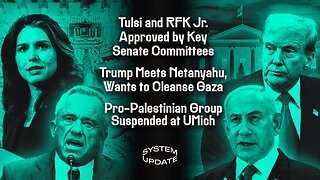 1:15:25
1:15:25
Glenn Greenwald
8 hours agoTulsi and RFK Jr. Approved by Key Senate Committees; Trump Meets Netanyahu: Wants to Cleanse Gaza; Pro-Palestinian Group Suspended at UMich | SYSTEM UPDATE #402
85.8K101 -
 1:43:57
1:43:57
Danny Polishchuk
8 hours agoThe Funniest Call In Show On Earth - Live From New York City's Best Comedy Club
48.6K1 -
 1:41:13
1:41:13
megimu32
8 hours agoON THE SUBJECT: Will the Super Bowl Be WOKE??!
37.8K7 -
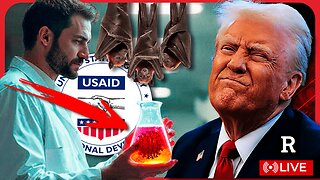 1:18:26
1:18:26
Redacted News
9 hours agoBREAKING! USAID Created and Funded COVID-19 Virus and Bioweapons, RFK and Tulsi pass major hurdle
158K215 -
 50:54
50:54
Candace Show Podcast
10 hours agoBecoming Brigitte: Gaslighting The Public | Ep 1
207K237 -
 4:41:05
4:41:05
Right Side Broadcasting Network
14 hours agoLIVE: President Trump Holds Press Conference with Israeli PM Benjamin Netanyahu - 2/4/25
229K100 -
 1:11:49
1:11:49
Edge of Wonder
9 hours agoInception Is Real: How Ads Are Showing Up in Our Dreams
39.5K6 -
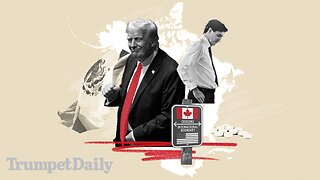 54:50
54:50
LFA TV
13 hours agoThe Trade War Ends | TRUMPET DAILY 2.4.25 7pm
35.7K7 -
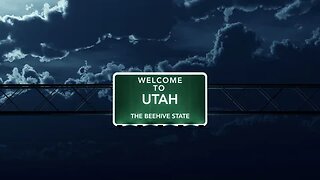 2:05:37
2:05:37
Quite Frankly
13 hours ago"Capitol Hill Headlines & The Utah Case" ft Lauren Conlin, The Zells 2/4/25
41.3K17 -
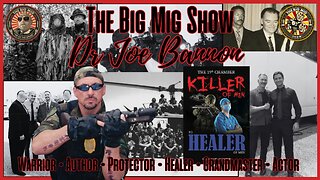 1:33:29
1:33:29
The Big Mig™
19 hours agoKiller of Men To Healer of Men Dr. Joe Bannon
32.7K5